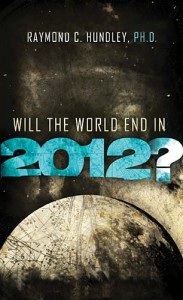Mere months after becoming a Christian, I met Tabor Zebulon, a twitchy,  bearded young prophet who supposedly lived in the high desert amidst a stockpile of food and ammo. He’d changed his name to something more “biblical” and withdrew from society, believing that the Great Tribulation was imminent. Tabor knew his Bible inside and out and spoke with persuasive fervency. His rabid diatribes and apocalyptic paranoia had a chilling effect on our small group of spiritual neophytes. It was to be the first of many encounters with an end-of-the world enthusiast.
bearded young prophet who supposedly lived in the high desert amidst a stockpile of food and ammo. He’d changed his name to something more “biblical” and withdrew from society, believing that the Great Tribulation was imminent. Tabor knew his Bible inside and out and spoke with persuasive fervency. His rabid diatribes and apocalyptic paranoia had a chilling effect on our small group of spiritual neophytes. It was to be the first of many encounters with an end-of-the world enthusiast.
Maybe that’s why I remain fascinated with doomsday predictions.
In Raymond Hundley’s new book, Will the World End in 2012?, the author chronicles an unsettling convergence of forces, all aimed at the year 2012. The focal point of this new round of end-time speculation is the Mayan calendar, which ends December 21 of that year. Being that the Mayan civilization was so prolific and exact at celestial science, the abrupt end of their calendar has led many to assume the worst. Speculations about that date range from crackpot to disturbingly credible. But in the end (no pun intended), the book is less of an in-depth investigation into genuine apocalyptic possibilities as it is a primer into fanatical speculation and a provocative (if not forced) opportunity to evangelize.
Hundley pulls together what he calls “ten pillars of the 2012 doomsday movement.” The end of the Mayan calendar is first and foremost. After that, however, those pillars, though interesting, progressively begin to crumble. For instance, credible scientific evidence of peak solar flare activity in 2012 is fascinating. One could imagine (as well the Bible states), awesome cosmological events such as solar storms contributing to a cataclysmic event. However, the deeper the author goes, the more it seems like a stretch. Chapters on Nostradamus, a collision with Planet X, a woman who allegedly speaks to aliens, the eruption of super volcanoes, and the Web Bot Project, contain tidbits of intriguing (if arcane) facts, but fail to engage toward a single compelling theory.
A good example is the chapter on CERN and the Large Hadron Collider. This massive particle accelerator is designed by scientists to “recreate the conditions just after the Big Bang.” However, the project is not without its detractors and dire warnings, the greatest being that the LHC could inadvertently create a black hole that swallows the earth. Frank Wilczek, Nobel prize-winning physicist, while dismissing the black hole theory, speculates that the Collider could produce “strangelets,” a type of particle that engulfs and converts matter, causing anything it touches to vanish. This type of scientific conjecture is engaging, even frightening, but it is almost completely unconnected to the question, Will the World End in 2012?
After reading the book, I am no closer to a legitimate answer. Yes, there are many factors that could lead to an end-of-the-world scenario. But the absence of a single persuasive argument to the question, I think, works against the author. I mean, how many other forces are at work that can be included in a possible 2012 event? Nuclear war, terrorism, a global epidemic, a rogue asteroid? Perhaps Hundley’s intention is simply to bring his reader to a point of spiritual preparedness for such a time. But that tact — compounded by an absence of substantial data — however affirming for the Tabor Zebulons of the world, will probably leave the skeptic or a genuine 2012 enthusiast, unmoved.














I looked up this guy's credentials and he's a doctor of systematic theology, which makes him (mostly) qualified for this. There are some people that are doctors that writes books about subjects in which that they are no expert, but the layman sees "Dr." near their name and they are deified. Richard Dawkins and Sam Harris blab on and on about religion and its history when they are biologists and fiction writers, respectively. Sounds a little strange, but I'm not about to trust an atheism who isn't a formal scholar of religion.
Sorry this is wildly off-topic.